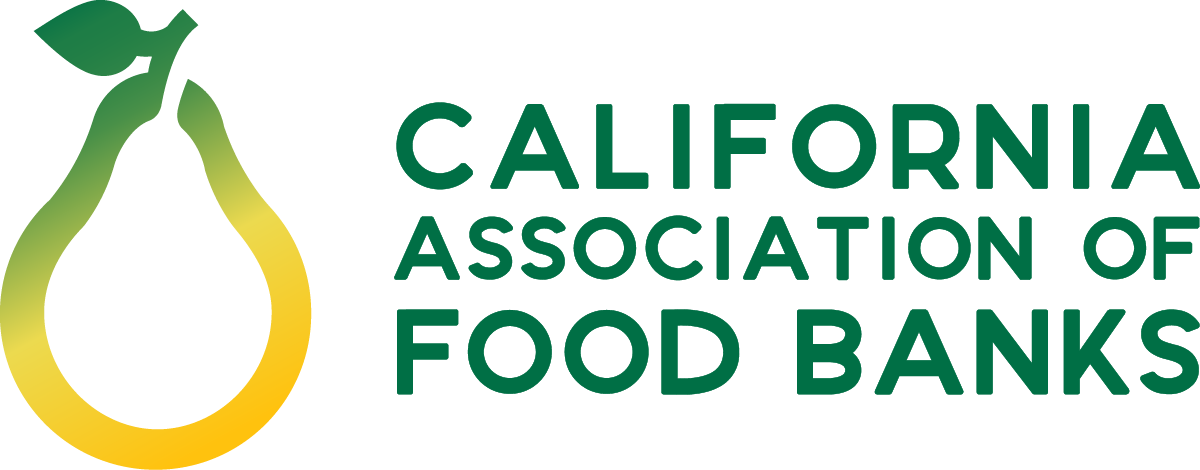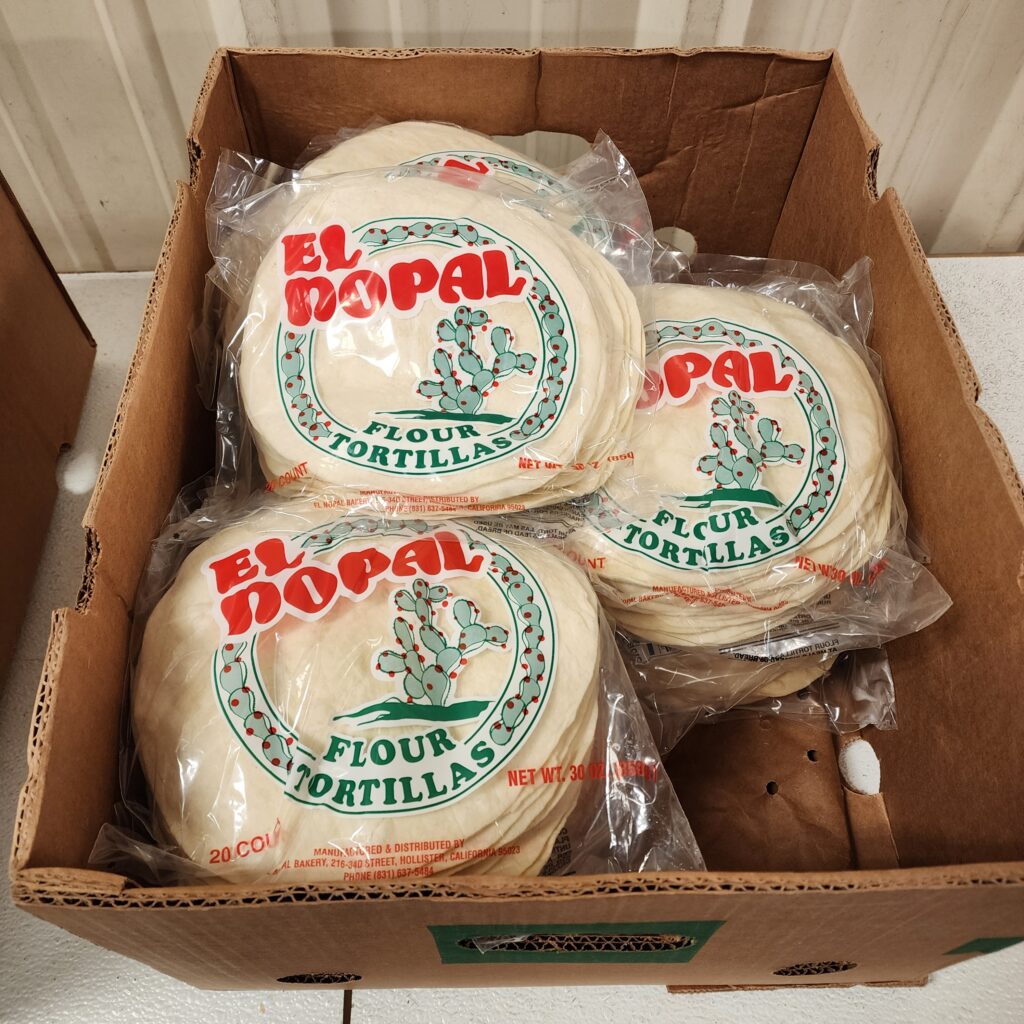Located on the outskirts of Hollister, Community FoodBank of San Benito is more than just a food bank—it’s a farmers market, a hub for local partners, a community center, and a logistical powerhouse that serves thousands of families every week. In 2024 alone, the Food Bank distributed an incredible 3.5 million pounds of food, ensuring that nutritious meals reached those in need. Their Student Snack Bag program continues to provide essential food to schools on a weekly basis, while their Mobile Pantry, affectionately known as “Benny,” relies on the dedication of 400 volunteers to operate efficiently—distributing an impressive 352,000 pounds of food last year.
At peak times, the Community FoodBank of San Benito assisted up to 1,873 individuals and 563 families in just one week. Over the course of the 2023-2024 fiscal year, their impact was even more profound, with 147,583 food bags distributed, 96,423 families served, and 303,030 individuals receiving much-needed support. Through their unwavering commitment, Community FoodBank of San Benito continues to be a vital resource for the community, tackling food insecurity one meal at a time.
A backbone of the Food Bank’s ability to provide nutritious, culturally relevant food is CalFood, a California program that provides State funds to purchase locally grown and produced foods. These funds enable partnerships with local food producers, like Hollister-based El Nopal bakery, ensuring families receive foods that meet their needs but are seldom donated. “CalFood allows us to meet people where they are, providing them with foods that feel like home,” says Guillermo Rodriguez, Executive Director. By investing in California’s agricultural economy while feeding communities, CalFood funding strengthens the Food Bank’s mission and ensures that no family goes without the comfort of familiar, nourishing meals.
Partnering with El Nopal
Since 2021, Community FoodBank of San Benito has partnered with El Nopal. When the COVID-19 pandemic hit hard in 2020, the bakery faced declining sales and uncertainty about its future. But through a partnership with the Food Bank, funded by the CalFood program, El Nopal began supplying fresh tortillas on a regular basis—helping to sustain the business while ensuring local families had access to a familiar, nourishing staple.
El Nopal has been a cornerstone of the community for nearly 50 years. Founded in 1975 by Francisco “Frankie” Berlanga’s father, the bakery has been passed down through generations, growing alongside Hollister and serving families who have visited for decades. The partnership with Community FoodBank has not only sustained a local family business but has also ensured that thousands of families receive fresh, locally made tortillas every two weeks through the marketplace, mobile pantries, and agency partners.
“When the pandemic hit, I saw the lines at the food bank and knew I wanted to be part of something bigger,” says Berlanga. “Most of the people who work at the food bank live right here in Hollister, and they truly care about getting good food to the community.” This partnership has created a full-circle impact—not only providing relief to the community during a crisis but also providing relief to local businesses. “My dad always told me, if you help people, it will come back to you. That’s why we keep working with the Food Bank. We help each other.”
With CalFood funding, the Food Bank currently purchases 600 packs of tortillas every two weeks, ensuring families can access a staple food that brings them comfort and familiarity. But as the cost of food rises, the pressure on the community grows. If CalFood funding drops, the ability to provide these tortillas to the community could be at risk.
Culturally Relevant Foods Matter
With CalFood funding, the Food Bank currently purchases 600 packs of tortillas every two weeks, ensuring families can access a staple food that brings them comfort and familiarity. But as the cost of food rises, the pressure on the community grows. If CalFood funding drops, the ability to provide these tortillas to the community could be at risk.
“Me encantan las tortillas que recibo. Como tortillas de maíz con caldo y sopa. También como frijoles con dos tortillas de maíz. También hago tostadas y chips con las tortillas de maíz.”
–Clienta de 65 años
(“I love the tortillas I receive. I eat corn tortillas with broth and soup. I also eat beans with two corn tortillas. I also make tostadas and chips with the corn tortillas.”
–65-year-old female client)
Tortillas are more than just food—they’re a source of comfort and connection. Rising food costs have made even the most essential staples harder to afford, but Community FoodBank of San Benito ensures families don’t have to choose between putting food on the table and paying bills. For many, these tortillas are more than nourishment; they’re a familiar part of daily life.
“Hago quesadillas con las tortillas de harina. Agradezco poder tener estas tortillas durante estos tiempos difíciles. Cualquier comida que consigo aquí me ayuda.”
–Cliente de 36 años
(“I make quesadillas with the flour tortillas. I am grateful to have these tortillas during these difficult times. Any food I get here helps me.”
–36-year-old client)
This partnership between Community FoodBank of San Benito and El Nopal Panaderia is a true win-win. Families not only receive fresh, locally made tortillas, but many also choose to visit the bakery when they can, supporting the business that helps nourish them. The increased visibility has strengthened the local business while fostering a deep sense of community pride.
Seeing the factory’s name on those tortillas creates a sense of connection and support—it’s food made by and for our community.
Guillermo Rodriguez, Executive Director, Community FoodBank of San Benito
The Growing Need & Challenges Ahead
As demand continues to rise, Community FoodBank of San Benito faces growing challenges. During COVID-19, the Food Bank served 260 families on a typical Thursday—now, they assist 1,500 families weekly across multiple days. Mobile pantries that once served 30 families now support 150, reflecting the increasing need in the community. However, despite their best efforts, a drastic drop in CalFood funding—from $62 million per year to just $8 million, a whopping 87% decrease—threatens their ability to continue providing essentials like fresh produce and tortillas.
“It’s heartbreaking to think we might have to cut back,” says Lisa De La Cruz. “Tortillas aren’t just food—they’re part of our identity.”
The funding cut would likely mean the Food Bank would have to cut their distribution of fresh tortillas in half. For families already struggling with the rising cost of food, these cuts will be devastating. At the same time, it puts a strain on local food producers like El Nopal, which relies on Food Bank purchases to sustain jobs and operations. If CalFood funding continues to decline, fewer tortillas will reach families in need, and the partnership that has supported both the community and the local economy will be at risk.
Looking Ahead
As the Governor and Legislature shape the 2025-26 State Budget, Community FoodBank of San Benito will be making its voice heard, ensuring lawmakers understand the devastating impact the drastic decrease in CalFood funding will have on families, small businesses, and the broader community. “CAFB makes it easy for us to stay involved in the fight against hunger,” says Guillermo Rodriguez, emphasizing the importance of advocacy in protecting vital resources for those in need.
This is a story of resilience, collaboration, and unwavering commitment. The partnership between the Food Bank and El Nopal proves that local solutions can create lasting change—strengthening businesses, keeping people employed, and ensuring families receive food that nourishes both body and soul. But this work cannot continue without sustained investment.
“I often hear, ‘I never thought I’d be in this situation,’ but when people realize we’re here for them, they’re so appreciative,” says Rodriguez.
No one should have to face hunger alone. With continued community support and state investment, San Benito can remain a place where no family has to choose between food and survival. Together, we can build a hunger-free future.
All photos/quotes/information courtesy Community FoodBank of San Benito County.
You can find them on Facebook, Instagramy X.
Statement on the Advancing Budget Reconciliation Proposing Deep Cuts to the Safety Net & Food Assistance
Damos inicio a la serie de conferencias Food ACCESS con una conversación poderosa y conmovedora
Cómo la SB 1383 ha impactado a los bancos de alimentos de California
Lunes de #: Banco de Alimentos Redwood Empire
¿Qué sigue para Granjas Juntas y Alimentos Locales para Familias Hambrientas?
#MemberMonday: Banco de Alimentos Comunitario de San Benito
La Asociación de Bancos de Alimentos de California responde a la propuesta de presupuesto estatal del Gobernador para enero de 2025-26
Declaración sobre la aprobación por parte del Congreso de una resolución continua sin protecciones para las víctimas del robo de SNAP
¡De la Granja a la Familia en las Noticias!
Celebrando a Paul Maas y sus 20 años de dedicación



